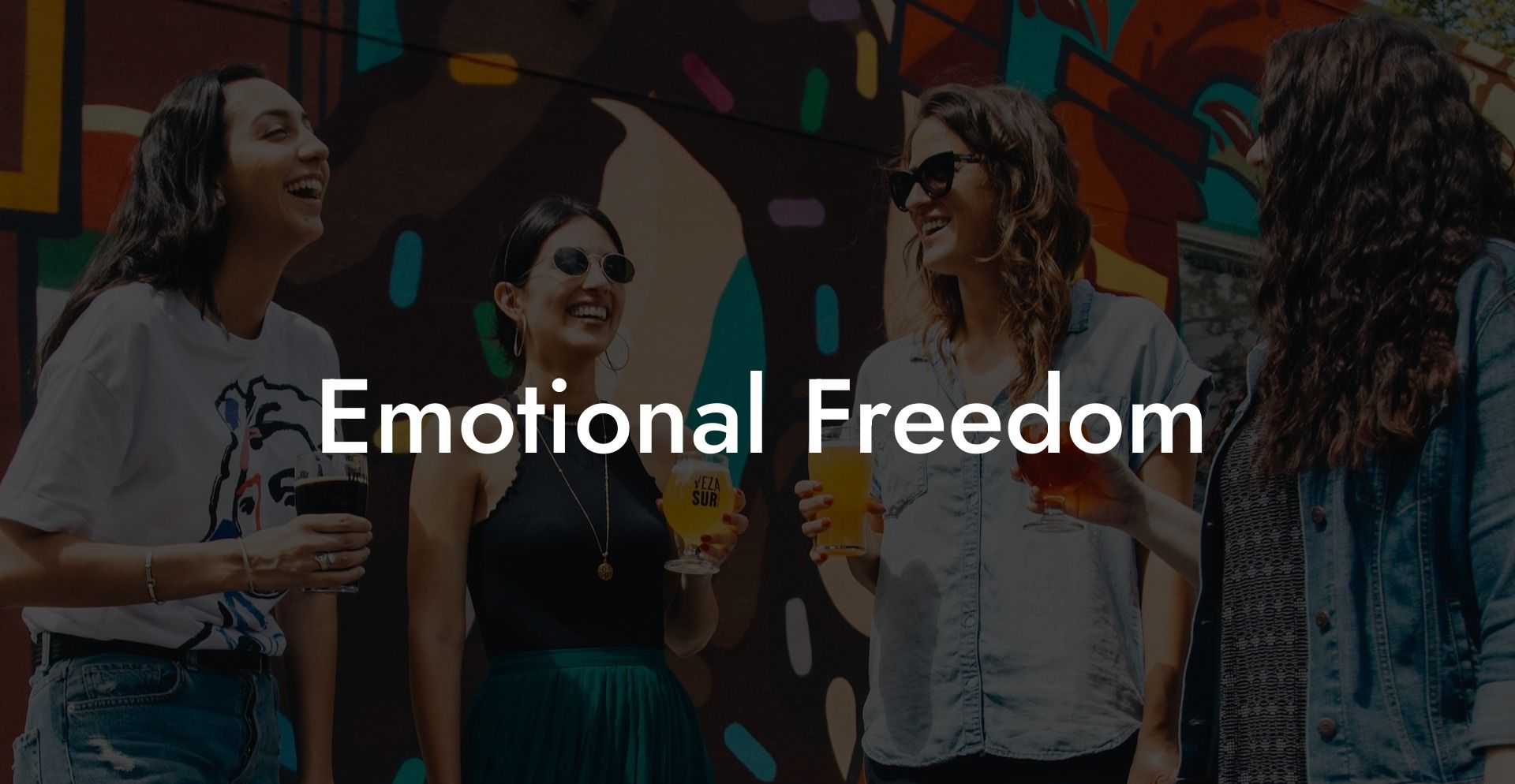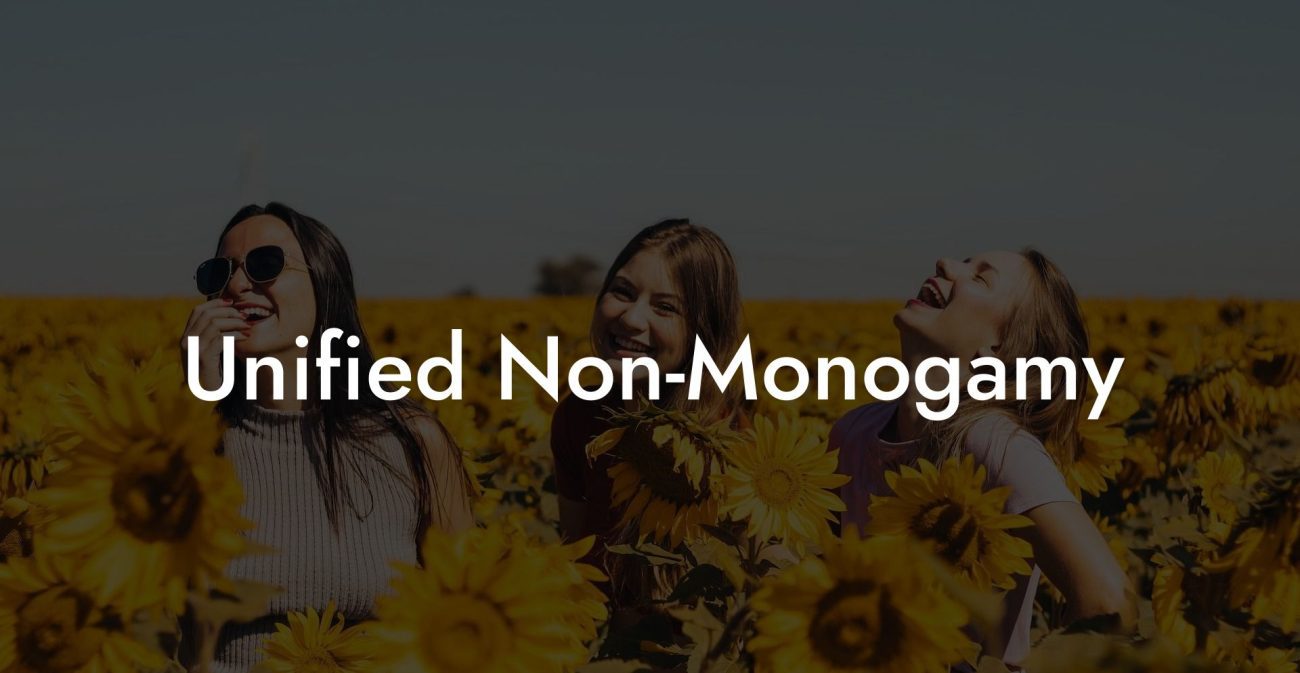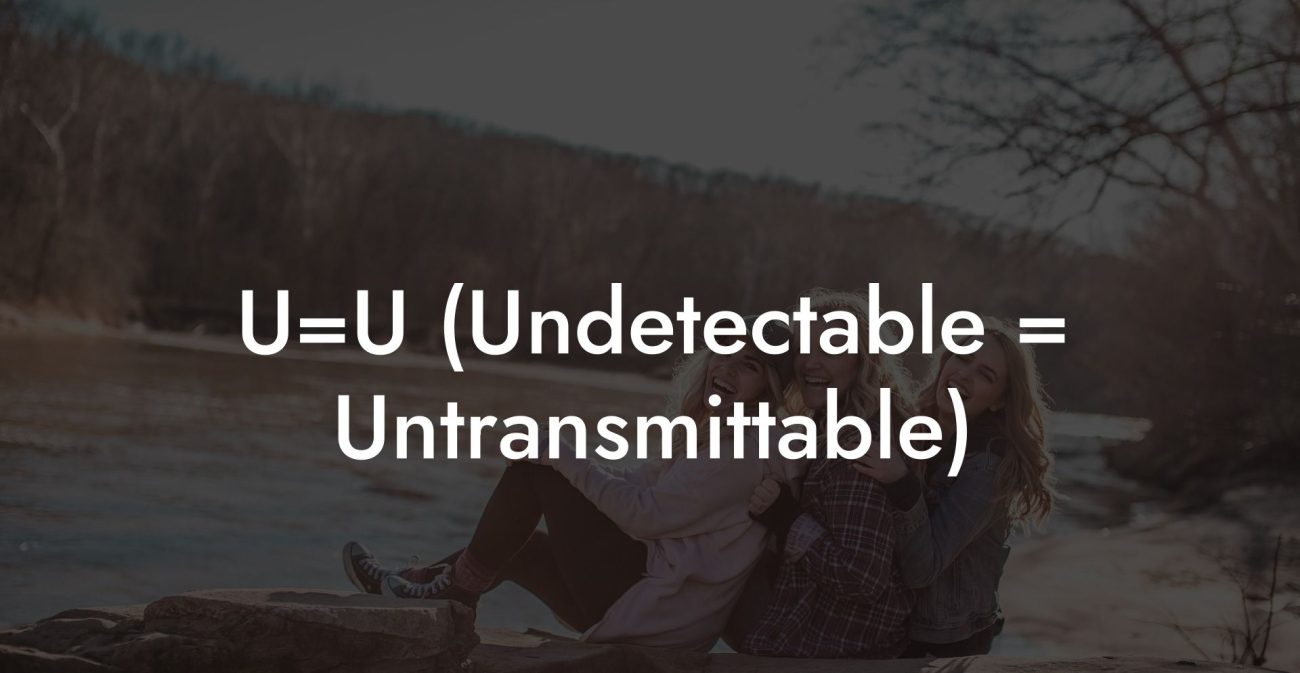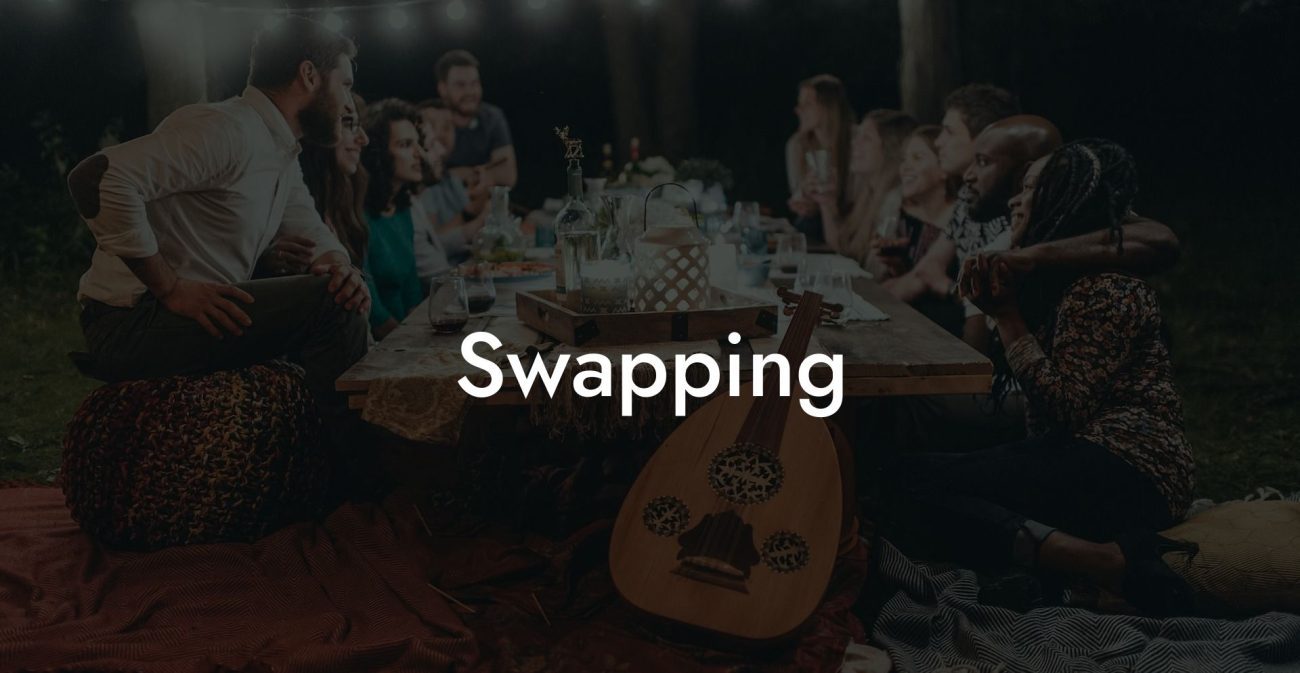Emotional Freedom

Ever feel like you’re breaking free from the chains of “shoulds” and “musts” in your relationships, like you’re finally dancing to your own beat? Welcome to Emotional Freedom—a revolutionary concept in ethical non monogamy that celebrates the art of loving without constraints, expectations, or the heavy baggage of societal norms. Imagine a world where your emotions are liberated, where you’re encouraged to explore your heart’s desires fully and authentically, without guilt or judgment. Buckle up, because we’re about to embark on a journey that’s as liberating as it is hilarious, as profound as it is playful, and as transformative as a spontaneous road trip with your best friends.
Have you ever wondered if monogamy is just a stupid little experiment? Open relationships, polyamory, relationship anarchy...find out which relationship dynamic suits you best with our one minute relationship test. See if you are just conforming to "societal norms". Reveal your truth >>
Quick Links to Useful Sections
- The Ethical Non Monogamy Term: Emotional Freedom
- What Is Emotional Freedom?
- Core Principles of Emotional Freedom
- Historical and Cultural Perspectives on Emotional Freedom
- From Repression to Liberation
- Cultural Shifts in Modern Love
- Everyday Dynamics of Emotional Freedom
- Living Out Loud in Your Relationships
- Adaptive Boundaries and Ongoing Negotiation
- Integrating Mindfulness and Self-Reflection
- Benefits of Embracing Emotional Freedom
- Deepened Emotional Intimacy
- Enhanced Personal Growth
- Improved Communication and Conflict Resolution
- Resilient, Adaptive Relationships
- Collective Emotional Support
- Challenges of Practicing Emotional Freedom
- Managing Vulnerability
- Balancing Self-Expression with Respecting Others
- Overcoming Cultural Conditioning
- Maintaining Consistent Communication
- Navigating Conflicts and Misunderstandings
- Frequently Asked Questions (FAQ)
- Resources and Community Support: Your Next Steps
The Ethical Non Monogamy Term: Emotional Freedom
What Is Emotional Freedom?
Emotional Freedom is the practice of embracing your feelings and expressing your true self in all your relationships, especially within the framework of ethical non monogamy. It’s about shedding the weight of traditional expectations and allowing yourself—and your partners—to experience love, vulnerability, and connection on your own terms. Think of it as the emotional equivalent of breathing in fresh air after being cooped up in a stuffy room.
In practical terms, Emotional Freedom means being able to explore and express your emotions authentically, without fear of judgment or rejection. It’s about recognizing that your feelings are valid, that you deserve to be heard, and that love should be an expansive, liberating experience. In a network of relationships, this concept creates a space where every partner can flourish emotionally, supporting not only their own growth but also the growth of the entire community.
Core Principles of Emotional Freedom
- Authenticity: Embrace your true feelings and share them honestly with your partners. No masks, no pretenses—just pure, unfiltered emotion.
- Vulnerability: Being emotionally free means being open to showing your vulnerabilities, knowing that this openness creates deeper, more meaningful connections.
- Self-Awareness: Regular self-reflection is key. Understand your emotions, triggers, and desires so you can express them clearly and constructively.
- Open Communication: Foster an environment where every partner feels safe to speak their truth. Honest dialogue is the cornerstone of emotional liberation.
- Mutual Empowerment: Support each other’s journeys toward emotional freedom. Celebrate your growth and encourage your partners to do the same.
- Respect for Boundaries: While Emotional Freedom encourages openness, it also respects individual boundaries and recognizes that everyone’s emotional pace is unique.
Historical and Cultural Perspectives on Emotional Freedom
From Repression to Liberation
For centuries, many cultures imposed strict emotional norms—teaching us to hide our true feelings, suppress our desires, and conform to rigid expectations of love and behavior. Traditional relationship models often valorized stoicism and reserve over openness and vulnerability. But as society began to evolve through the sexual revolution, the rise of feminist thought, and increasing awareness of mental health, people started to challenge these restrictive paradigms.
The concept of Emotional Freedom emerged as a counterpoint to emotional repression—a call to honor one’s feelings as a source of strength rather than weakness. Early pioneers in ethical non monogamy recognized that love and connection flourish when emotions are allowed to flow freely and honestly. This shift paved the way for a more inclusive and supportive approach to relationships, one where vulnerability is seen as an asset and emotional authenticity as the foundation of true intimacy.
Cultural Shifts in Modern Love
Today, especially among Millennials and Gen-Z, there is a growing emphasis on mental health, self-care, and emotional authenticity. Social media and online communities have given rise to movements that celebrate raw, unfiltered emotional expression. In the realm of ethical non monogamy, Emotional Freedom is not just a buzzword—it’s a lifestyle that champions the idea that love should be liberating and life-affirming.
Modern love is no longer about adhering to outdated scripts; it’s about writing your own narrative, one where every emotion is valued, and every connection is allowed to evolve organically. Emotional Freedom in this context means embracing change, growth, and the full spectrum of human feelings, creating relationships that are as dynamic and multifaceted as life itself.
Everyday Dynamics of Emotional Freedom
Living Out Loud in Your Relationships
Imagine waking up each day knowing that you can share your deepest fears, wildest dreams, and everything in between with your partner without reservation. That’s the essence of Emotional Freedom. In practical terms, it means creating daily rituals that encourage open dialogue and honest self-expression. Whether it’s a morning coffee chat, a weekly “heart-to-heart,” or spontaneous texts that share your thoughts, every act of emotional sharing builds a bridge of understanding.
In a network of ethical non monogamy, this dynamic is even more powerful. When every member of the network practices Emotional Freedom, it creates a ripple effect where each act of vulnerability reinforces the collective trust and support. Your feelings become a shared resource—a source of strength that binds everyone together.
Adaptive Boundaries and Ongoing Negotiation
Emotional Freedom doesn’t mean the absence of boundaries; rather, it means that those boundaries are flexible and open to renegotiation. As you and your partners evolve, so too do your emotional needs. Regularly revisiting and adjusting your emotional boundaries ensures that your relationships remain aligned with your current state of being.
Consider setting aside time to discuss how you’re feeling, what’s working, and what might need to change. This process of continual renegotiation is not a sign of instability—it’s a celebration of growth and a commitment to nurturing relationships that adapt with you.
Integrating Mindfulness and Self-Reflection
A cornerstone of Emotional Freedom is mindfulness. By staying present and attuned to your emotional landscape, you can better understand your feelings and communicate them effectively. Mindfulness practices such as meditation, journaling, and mindful breathing help you process your emotions without judgment, enabling you to respond with empathy rather than react impulsively.
Regular self-reflection allows you to track your emotional evolution and identify patterns that may either support or hinder your relationships. This ongoing awareness is key to maintaining Emotional Freedom and ensuring that every connection is as authentic and fulfilling as possible.
Benefits of Embracing Emotional Freedom
Deepened Emotional Intimacy
When you practice Emotional Freedom, you open the door to deeper, more genuine connections. By sharing your true self and being open to the emotions of others, you foster intimacy that is resilient and richly layered.
- Authentic Connection: True intimacy is built on the courage to be vulnerable and the strength to listen with empathy.
- Stronger Bonds: Over time, open and honest sharing creates a solid foundation of trust and mutual understanding.
Enhanced Personal Growth
Emotional Freedom encourages continuous self-improvement and self-discovery. As you learn to embrace and articulate your feelings, you also empower yourself to grow and evolve—both individually and within your relationships.
- Self-Awareness: Regular reflection helps you understand your emotional triggers and needs, leading to healthier interactions.
- Mutual Empowerment: When every partner is committed to growth, the entire relationship network flourishes.
Improved Communication and Conflict Resolution
Open, transparent communication is the lifeblood of Emotional Freedom. When everyone feels safe to express their emotions, misunderstandings are minimized, and conflicts can be resolved more constructively.
- Effective Dialogue: Honest conversations help preempt conflicts and facilitate quick, effective resolution when issues arise.
- Reduced Misunderstandings: Clear expression of feelings and needs ensures that all partners are on the same page.
Resilient, Adaptive Relationships
Relationships founded on Emotional Freedom are inherently resilient. They can weather the storms of change because they are built on a flexible framework that adapts as life evolves.
- Adaptive Boundaries: Continuously renegotiating emotional boundaries ensures that your relationships remain aligned with your current needs.
- Resilience in Change: By embracing change and uncertainty, your connections become more robust and capable of handling life’s ups and downs.
Collective Emotional Support
In ethical non monogamy, Emotional Freedom is not just an individual pursuit—it’s a collective experience. When every member of your relationship network practices emotional openness, it creates a supportive ecosystem where each person’s well-being is intertwined with the others.
- Shared Empathy: Collective emotional sharing fosters a deep sense of solidarity and mutual care.
- Unified Growth: As each person grows, the entire network benefits from increased strength, resilience, and support.
Challenges of Practicing Emotional Freedom
Managing Vulnerability
Opening up emotionally can be daunting, especially if past experiences have left you guarded. The challenge lies in embracing vulnerability without fear of judgment or rejection.
- Tip: Start with small steps and gradually share deeper aspects of yourself as trust builds.
- Tip: Practice self-compassion and remind yourself that vulnerability is a sign of strength, not weakness.
Balancing Self-Expression with Respecting Others
While it’s important to express your emotions freely, it’s equally vital to respect your partners’ feelings and boundaries. Balancing your need for openness with the need for mutual sensitivity can be challenging.
- Tip: Use “I” statements to communicate your feelings without imposing them on others.
- Tip: Regularly check in with your partners to ensure that your self-expression is received in a positive, constructive manner.
Overcoming Cultural Conditioning
Many of us have been conditioned to believe that emotions should be hidden or controlled. Breaking free from these ingrained beliefs can be a significant hurdle.
- Tip: Engage with literature, podcasts, and communities that celebrate emotional openness and vulnerability.
- Tip: Reflect on and challenge any internalized beliefs that hinder your ability to express yourself authentically.
Maintaining Consistent Communication
In a busy life, regular emotional check-ins can sometimes fall by the wayside. Ensuring that everyone remains on the same page requires dedication and consistent effort.
- Tip: Schedule regular times for emotional dialogue—whether it’s daily, weekly, or monthly—to keep the connection vibrant.
- Tip: Leverage digital tools like shared calendars or group chats to facilitate ongoing communication.
Navigating Conflicts and Misunderstandings
Even in relationships that embrace Emotional Freedom, conflicts are inevitable. The key is to address them mindfully and constructively.
- Tip: Use conflict resolution strategies such as active listening, empathy, and, if needed, professional mediation.
- Tip: Remain open to feedback and be willing to adjust your behavior to improve the relationship.
Frequently Asked Questions (FAQ)
1. What is Emotional Freedom in ethical non monogamy?
Emotional Freedom is the practice of embracing and expressing your true feelings openly and honestly within your relationships, without fear of judgment. It’s about liberating yourself from traditional emotional constraints and nurturing authentic connections.
2. How does Emotional Freedom differ from traditional views of love?
Traditional views of love often emphasize stability and fixed roles, while Emotional Freedom embraces change, vulnerability, and continuous self-reflection. It’s a more fluid, dynamic approach that values growth and adaptation.
3. What are the core principles of Emotional Freedom?
The core principles include authenticity, vulnerability, open communication, self-awareness, mutual empowerment, and flexible boundaries.
4. How can practicing Emotional Freedom benefit my relationships?
It can deepen emotional intimacy, improve communication, foster personal growth, and create a resilient support network where every partner feels truly seen and valued.
5. What challenges might I face when trying to practice Emotional Freedom?
Common challenges include managing vulnerability, balancing self-expression with sensitivity towards others, overcoming cultural conditioning, and maintaining consistent communication.
6. How important is mindfulness in achieving Emotional Freedom?
Mindfulness is crucial—it helps you stay present, understand your emotions, and respond with empathy rather than react impulsively, thereby enhancing your overall emotional well-being.
7. Can Emotional Freedom be applied in both monogamous and non monogamous relationships?
Absolutely. Emotional Freedom is about being true to your feelings and can enhance any relationship model that values openness, growth, and authentic connection.
8. What strategies can help improve communication for Emotional Freedom?
Regular check-ins, active listening, using “I” statements, and leveraging digital tools for continuous dialogue are effective strategies for nurturing Emotional Freedom.
9. How does shared vulnerability contribute to Emotional Freedom?
When partners share their vulnerabilities, it builds trust and deepens emotional intimacy, making it easier for everyone to feel connected and supported.
10. What role does self-care play in maintaining Emotional Freedom?
Self-care is essential—it ensures you remain emotionally and physically balanced, allowing you to contribute positively to your relationships and embrace your true self.
11. How can I overcome internalized beliefs that hinder Emotional Freedom?
Engage with resources that promote emotional openness, such as books, podcasts, and supportive communities, and practice self-reflection to challenge and reframe limiting beliefs.
12. Where can I find additional resources on Emotional Freedom?
Additional resources include books like The Ethical Slut by Dossie Easton & Janet Hardy, podcasts such as Multiamory, and online communities like r/polyamory that focus on ethical non monogamy and mindful relationship practices.
Resources and Community Support: Your Next Steps
- The Ethical Slut by Dossie Easton & Janet Hardy – A foundational text that explores ethical non monogamy and offers insights into cultivating Emotional Freedom.
- Podcasts: Listen to Multiamory and other relationship-focused podcasts for real-life stories, expert advice, and strategies on nurturing authentic emotional connections.
- Online Communities: Join forums such as r/polyamory to exchange ideas, seek support, and connect with like-minded individuals who value open, mindful relationships.
- Workshops and Webinars: Attend events on relationship psychology, mindfulness, and ethical non monogamy to deepen your understanding and build a robust support network.
- Therapy and Counseling: Consider professional guidance if you need help navigating complex emotions or overcoming barriers to vulnerability in your relationships.
By exploring these resources and applying the practical strategies outlined in this guide, you can cultivate a rich, informed understanding of Emotional Freedom in ethical non monogamy. Embrace your vulnerability, celebrate your growth, and nurture connections that allow you to express your true self—transforming your love life into an authentic, resilient, and ever-evolving masterpiece.
Lost & confused by all of the terms, types and seemingly made up 3 letter acronyms?? We've got you. Check out our Ethnical Non-Monogamy Dictionary >>
Useful Interruption: Not sure which relationship vibe fits you best? Take our Relationship Test, it’ll give you the real insight into your natural relationship style. Then, dive into our binge-worthy guides (from the tried-and-true to the “wait, that’s a thing?”) and find the perfect relationship type for your life:
- Monogamy
- Open Relationships
- Ethical Non-Monogamy
- Solo Polyamory
- Non-Hierarchical Polyamory
- Hierarchical Polyamory
- Relationship Anarchy
- Swinging
Now back to the main article but yeah take the test...












